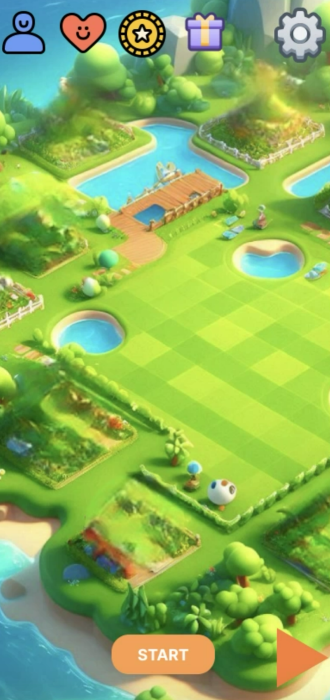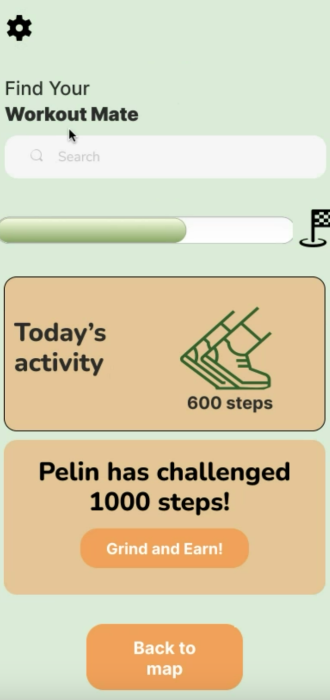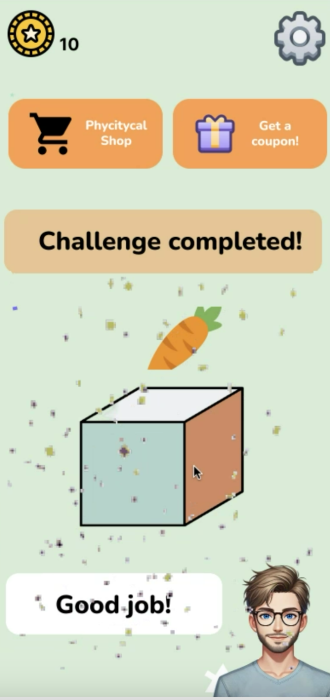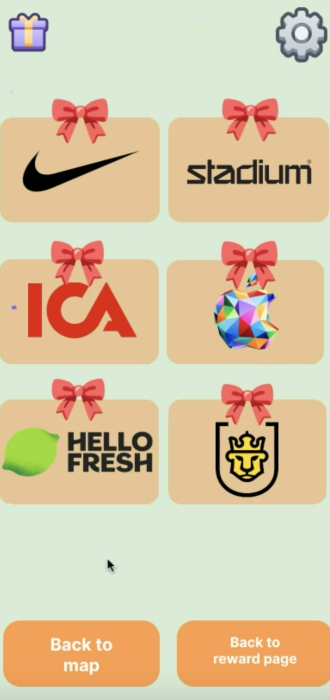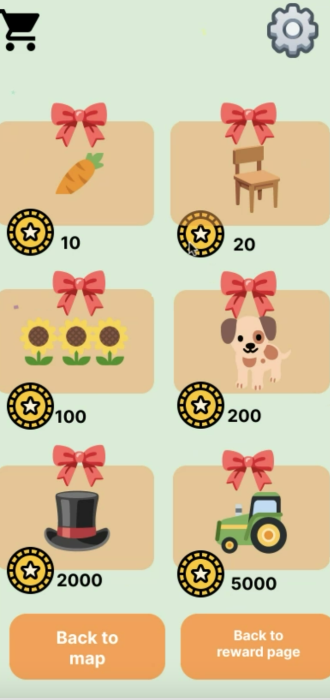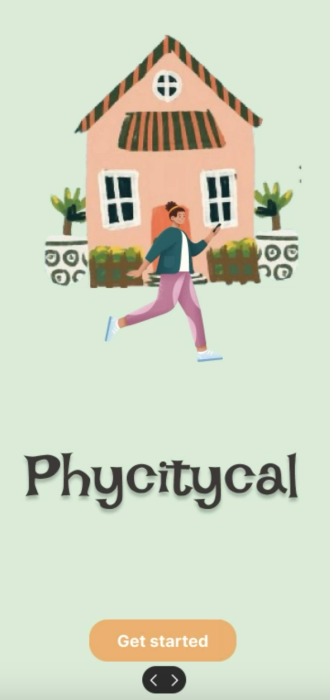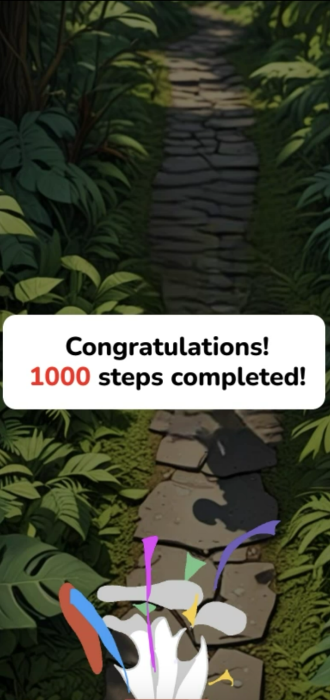Could gaming make you fitter?
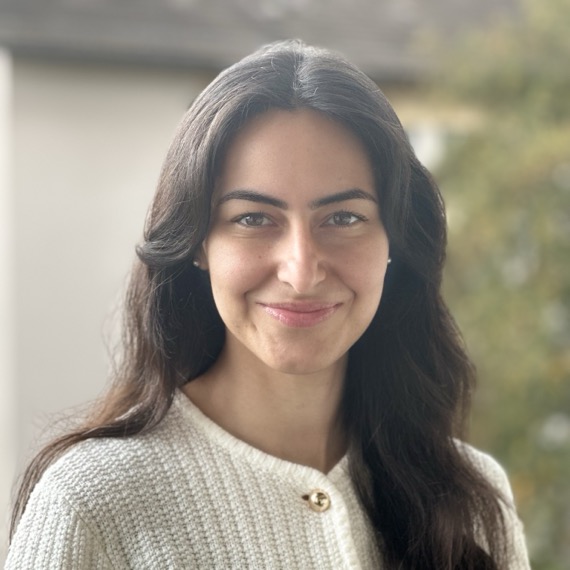
Pelin Koyuncu attended the ENLIGHT summer school “Game Design in Health Care and Education”. She developed an app that motivates people to exercise and stay physically active. In this interview, she discusses how she combines her passion for gaming with her psychology studies at the University of Bern, and explains why an ENLIGHT hybrid course offers a unique experience.
Should people take up gaming to improve their physical health?
[Laughs] I play all the Mario games, but gaming has always been a hobby for me. In this summer school I learned how one can influence people’s behaviour through gamification. The experience combined my hobby with my psychology studies here in Bern.
During the two weeks in Uppsala, we prototyped a game designed to motivate people on low incomes to exercise more. Research has shown that their physical activity is lower than average and that one of their biggest challenges is social isolation. For example, because people on lower incomes may not be able to afford a gym membership.
How is your app solving this problem?
There are two types of rewards: In-app rewards and real-life rewards. The former give you coins and carrots to reach new levels in your game and the latter give you vouchers to use in real shops. To build a community, we introduced shared challenges and ways to form groups with people in your neighbourhood.
Pelin’s prototype app
Where can I download the app?
It is a prototype that needs to be fully developed. Game design is also a methodology that can be used both online and offline. In this summer school we learned about the psychological, behavioural, motivational and management theories. We then applied this to practical challenges where we learned how to develop an app.
How did the hybrid set-up of the ENLIGHT summer school work?
During the first week we took online classes, which included theoretical input, independent study – even a bit of gaming – and ended with an exam. This was followed by two weeks at Uppsala University, which included lectures and group work. The online preparation helped to get everyone on the same page, and we were soon ready for the practical challenges.
For the applied part of the summer school, we were divided up into groups of 5-6 people and had to choose a challenge. We had to develop a game that focused on health challenges, such as vaccination, diabetes or physical exercise. We also learned which platforms and technologies to use to develop the app.
The learning atmosphere was very informal and everyone spoke English. In my group, there were people from China, Ireland, Italy, Sweden and myself from Switzerland. It was a very enriching experience as I learnt a lot about other cultures and the differences in education systems across Europe.
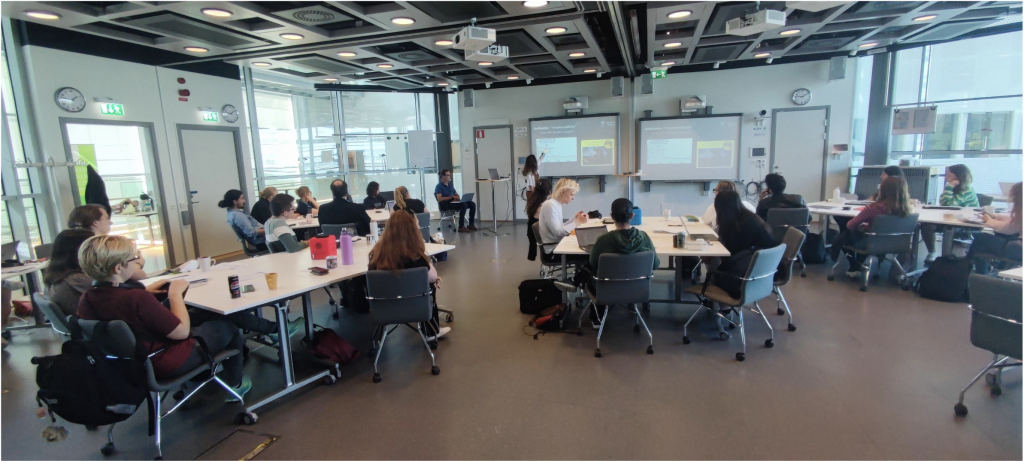
The ENLIGHT summer school was run by five lecturers from four universities?
It was led by Erik Olson, Professor of Health Psychology at Uppsala University. Other lecturers, such as Femke DeBackere from Ghent University and Jaanus Jaggo from the University of Tartu, came to Uppsala just for their input and then stayed in touch with the class via e-mail. Everyone brought their own expertise to the table, which strengthened the interdisciplinary aspect of the summer school.
How was staying in Uppsala?
I always wanted to do an exchange, but COVID-19 made it impossible. With this summer school, I was able to go abroad for a short time. The campus felt a little empty because it was summer. At least that helped me get a room close to the main university building. Still, you could feel that Uppsala University has a very strong sense of community. I wish we had a bit more of that here in Bern.
“My vision is to find a way to combine the fun of gaming with the mental health challenges people face.”
Pelin Koyuncu
What will you take with you from this summer school for your next career step?
I want to apply what I have learned about game design during my Ph.D. studies. For example, game theory could be used to improve the mental wellbeing of teenagers. My vision is to find a way to combine the fun of gaming with the challenges people face, and to help them to overcome them.
Find out more
Images: Pelin Koyuncu
Text: Caspar Bienek
